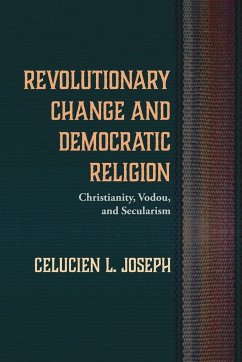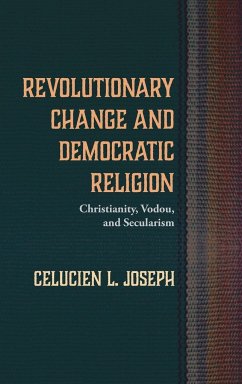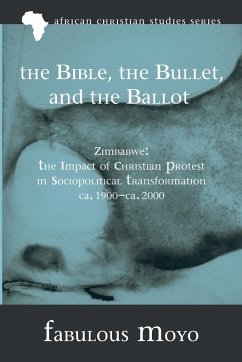In Revolutionary Change and Democratic Religion, Celucien Joseph provides a fresh and careful reexamination of Haiti's intellectual history by focusing on the ideas and writings of five prominent thinkers and public intellectuals: Toussaint Louverture, Joseph Antenor Firmin, Jacques Roumain, Dantes Bellegarde, and Jean Price-Mars. The book articulates a twofold argument. First of all, Haiti has produced a strong intellectual tradition from the revolutionary era to the postcolonial present, and that Haitian thought is not homogeneous and monolithic. Joseph puts forth the idea that the general interweaving themes of rhetoric, the race concept, race vindication, universal emancipation, religious pluralism, secular humanism, the particular and the universal, and cosmopolitanism are representative of Haiti's intellectual tradition. Secondly, the book also contends that Haitian intellectuals have produced a religious discourse in the twentieth century that could be phrased religious metissage. The religious ideas of these thinkers have been shaped by various forces, ideologies, religious traditions, and philosophical schools. In the same way, the religious experience of the Haitian people should be understood in terms of conflicting, heterodox, and pluralistic manifestations of religious piety, as the people in Haiti reacted to the crisis of slavery, Western colonialism and imperialism, and the arrogance of race in modernity in their striving to reposition themselves within the framework of universal and human metanarratives. The book departs from the dominant (contemporary) Vodou scholarship that is often characteristic of North American and Western studies on the religious life of the Haitian people and Haitian thinkers.








